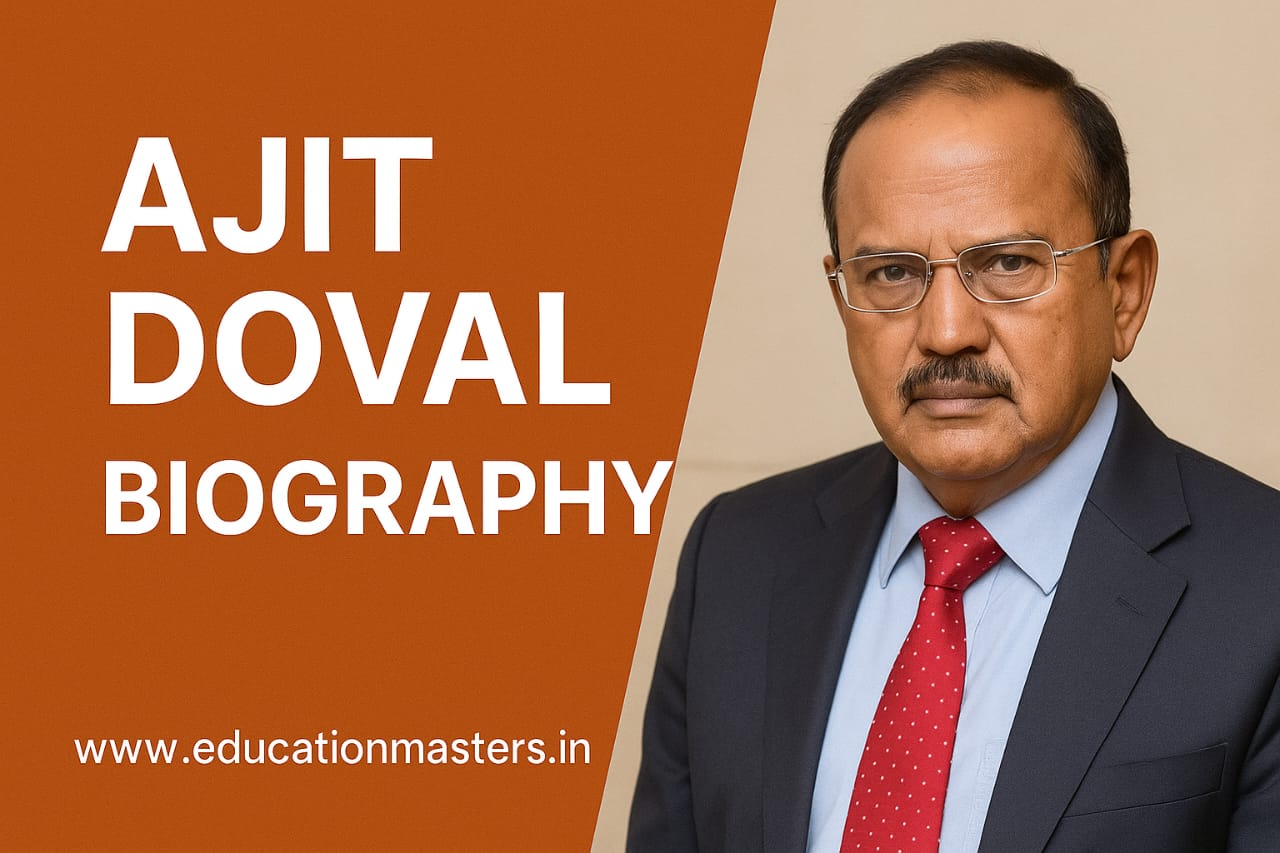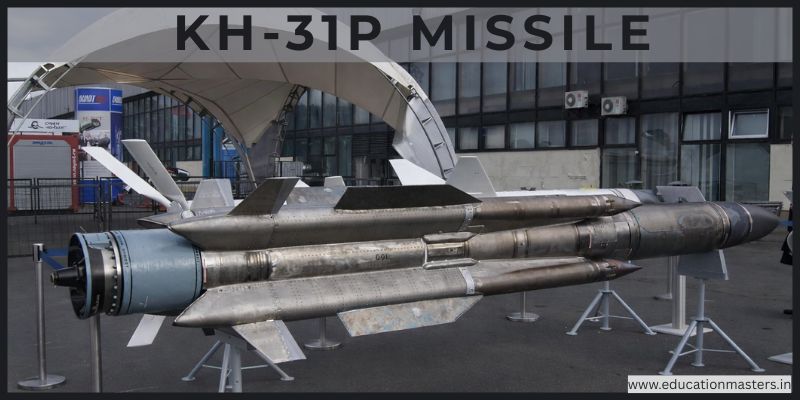Ajit Doval Biography
By Gaurav Chamoli | Article | Jun 11, 2025

Ajit Doval is an Indian intelligence officer and strategist currently serving as the National Security Advisor (NSA) to the Prime Minister of India. Known for his fearless field operations and sharp intellect, Doval has played a pivotal role in shaping India's national security doctrine. He is widely respected for his deep expertise in counterterrorism, diplomacy, and intelligence. Often referred to as “The Indian James Bond,” Doval is credited with spearheading operations such as the 2016 surgical strikes, 2019 Balakot airstrikes, and contributing to the historic revocation of Article 370 in Jammu & Kashmir. His decades of covert service and strategic leadership have made him one of the most influential figures in modern Indian defense and security.
|
Field |
Details |
|
Name |
Ajit Kumar Doval |
|
Image |
|
|
Caption |
Ajit Doval in 2019 |
|
Birth Name |
Ajit Kumar Doval |
|
Birth Date |
January 20, 1945 |
|
Birth Place |
Ghiri Banelsyun, Pauri Garhwal, Uttarakhand, India |
|
Death Date |
N/A (Alive) |
|
Death Place |
N/A |
|
Resting Place |
N/A |
|
Nationality |
Indian |
|
Citizenship |
India |
|
Other Names |
The Indian James Bond, Doval Sahib |
|
Education |
MA in Economics |
|
Alma Mater |
University of Agra |
|
Occupation |
Civil Servant, Intelligence Officer, National Security Advisor |
|
Years Active |
1968–present |
|
Known For |
Counterterrorism, Covert Operations, National Security Strategy |
|
Notable Works |
Role in Surgical Strikes (2016), Balakot Airstrikes (2019), Revoking Article 370 |
|
Spouse(s) |
Aruni Doval |
|
Children |
Shaurya Doval |
|
Parents |
Major G.N. Doval (father) |
|
Relatives |
N/A |
|
Website |
1. Early Life and Family Background
Birth and Origins
Ajit Kumar Doval was born on January 20, 1945, in Ghiri Banelsyun, a remote village in Pauri Garhwal, in present-day Uttarakhand, then part of the United Provinces during British India.
Family Background
Belonging to a Garhwali Brahmin family, Ajit Doval inherited a strong sense of patriotism from his father, Major G.N. Doval, an officer in the Indian Army. His father’s discipline, military values, and nationalistic outlook left a profound influence on young Ajit’s character and aspirations.
2. Education and Early Influences
Schooling
Doval was educated at Ajmer Military School, Rajasthan, one of the five Rashtriya Military Schools in India. These institutions were designed to prepare students for a future in the armed forces or civil services. The rigorous and disciplined environment instilled in him a lifelong affinity for structure, duty, and public service.
Higher Education
He pursued a Master’s degree in Economics from the University of Agra. His academic training in economics gave him a broader understanding of national and international affairs, complementing his strategic thinking in intelligence and policymaking.
Early Interests
Even as a student, Doval displayed keen interest in current affairs, military operations, and espionage history. Stories of India's wars and intelligence feats inspired him, making a career in national service almost inevitable.
3. Entry into Civil Services and Intelligence
IPS Career
In 1968, Ajit Doval joined the Indian Police Service (IPS), allocated to the Kerala cadre. His analytical mind and ability to handle high-pressure situations earned him early recognition.
Transition to Intelligence Bureau (IB)
His extraordinary skills in intelligence gathering and psychological operations led to his selection into the Intelligence Bureau (IB), India's premier internal intelligence agency. Here, he quickly rose through the ranks, becoming one of the most trusted operatives for counter-terror and counter-insurgency missions.
4. Major Operations and Strategic Contributions
Mizoram (1970s)
In the 1970s, Doval infiltrated rebel camps in Mizoram, engaging directly with insurgents. His operations helped bring key Mizo leaders to the negotiation table, leading to the de-escalation of the insurgency.
Sikkim Integration (1975)
Doval reportedly played a covert diplomatic and intelligence role in the peaceful annexation of Sikkim into the Indian Union, an operation considered one of the most tactful in Indian foreign policy history.
Operation Black Thunder (1988)
Disguised as a Pakistani operative, he infiltrated the Golden Temple in Amritsar and gathered vital intelligence for the success of Operation Black Thunder, which neutralized heavily armed militants. This operation marked a turning point in counter-insurgency efforts in Punjab.
Kandahar Hijacking (1999)
During the IC-814 hijacking, Ajit Doval was part of the core negotiation team that engaged with the Taliban and attempted to secure the safe release of hostages in Kandahar. Though controversial, this operation showcased Doval's negotiation acumen in extreme crisis.
5. Role as National Security Advisor (NSA)
Appointment
Ajit Doval was appointed as India’s 5th National Security Advisor in May 2014 by Prime Minister Narendra Modi. Since then, he has been the principal architect of India’s national security and foreign strategic doctrine.
Surgical Strikes (2016)
Following the Uri terrorist attack, under Doval’s strategic leadership, India launched surgical strikes across the Line of Control (LoC) targeting terrorist launch pads in Pakistan-occupied Kashmir—a landmark shift in Indian military policy.
Balakot Airstrikes (2019)
He played a key role in coordinating the intelligence and logistics for the Balakot airstrikes conducted in response to the Pulwama attack.
Article 370 Revocation (2019)
Doval was instrumental in planning the revocation of Article 370, which granted special status to Jammu & Kashmir. He supervised troop deployments and conducted ground assessments to ensure a smooth transition.
6. Strategic Partnerships and Diplomacy
-
India-U.S. Counterterrorism Partnership: Enhanced intelligence sharing, especially in cyber-security and counterterrorism.
-
India-Israel Strategic Relations: Strengthened military technology transfers and joint counterterror operations.
-
NSA-level Dialogues: Led trilateral NSA meetings with countries like China, UAE, and Japan.
7. Personal Life
Family
Ajit Doval is married to Aruni Doval, who maintains a low public profile. Together, they have a son, Shaurya Doval, who is a prominent economist, entrepreneur, and policy strategist. Shaurya founded the India Foundation, a policy think tank aligned with India’s nationalist narrative.
Lifestyle and Interests
Doval is known for his austere and disciplined life, avoiding media limelight. He is a voracious reader of military history, geopolitics, and strategic literature.
8. Honors and Awards
Kirti Chakra
He is the first IPS officer to be awarded the Kirti Chakra, India’s second-highest peacetime gallantry award, recognizing his valor and operations behind enemy lines.
Other Recognitions
-
Honorary fellowships from national defense and security institutions.
-
Invited speaker at global forums on intelligence, strategic doctrine, and cybersecurity.
-
Regularly featured in publications like The Diplomat, Foreign Affairs, and India Today.
9. Legacy and Influence
Ajit Doval has revolutionized India’s national security architecture, transitioning it from a reactive to a proactive and offensive doctrine. His influence has permeated policymaking, military planning, and foreign diplomacy. Young civil servants and intelligence officers cite him as an iconic figure in Indian strategic history.
10. Media Representation
Books
-
“India’s Most Fearless” by Shiv Aroor and Rahul Singh – Contains narratives influenced by operations under Doval’s doctrine.
-
“The New Arthashastra” – Doval penned the foreword for this policy compilation on Indian statecraft.
Films
-
“Uri: The Surgical Strike” (2019) – While fictionalized, the NSA role is considered inspired by Doval.
-
Numerous documentaries on India’s intelligence and counter-terror strategies reference his role.
11. References
-
Ajit Doval: The Great Spy Who Changed India's Defense Posture, The Diplomat, 2019.
-
Operation Black Thunder: How Ajit Doval Went Undercover, India Today, 2018.
-
From Kashmir to Kandahar: The Unseen Warroom of Ajit Doval, The Hindu, 2020.
-
Indian Police Service Records – Government of India
-
The Indian NSA Who Rewrote Doctrine, Times of India, 2021.
-
PMO Reports and Government Press Releases (2014–2024)
12. External Links
सरकारी नौकरियों, जीके अपडेट्स और करेंट अफेयर्स की ताज़ा जानकारी सबसे पहले पाने के लिए:
-
हमारे WhatsApp चैनल को फॉलो करें:
https://whatsapp.com/channel/0029Vb6sjZz0wajwDXcd5B0U -
हमारे Telegram चैनल को फॉलो करें:
https://t.me/educationmastersin -
हमारे Facebook Page को फॉलो करें:
https://www.facebook.com/educationmastersindia

.jpg)


.png)
.jpg)
.jpg)


